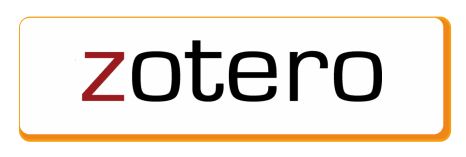LAYANAN CYBERCOUNSELING PADA MASA PANDEMI COVID-19
 Abstract views: 2267
,
Abstract views: 2267
,
 PDF downloads: 996
PDF downloads: 996
Abstract
Downloads
References
Bloom, J.W., 7 Walz, G.R. (2004). Cybercounseling & Cyberlearning. An Encore, US:
CAPS Press.
Gladding, S. T. (2012). Konseling; Profesi yang Menyeluruh (Edisi Keenam) (Alih
Bahasa: Winarno dan Lilian Yuwono). Jakarta: PT Indeks
Koutsonika, Helen (2009) E-Counseling: the new modality. Online Career Counseling
– a challenging opportunity for greek tertiary education. In: Proceedings of the WebSci'09: Society On-Line, 18-20 March 2009, Athens, Greece. (In Press)
Mallen, M. J., & Vogel, D. L. (2005). Introduction to the major contribution:
Counseling psychology and online counseling. The Counseling Psychologist, 33, 761-775
Muhadjir,Noeng.(1996). Metode Penelitian Kualitatif. Yogyakarta: Rake Sarasin.
National Board for Certified Counselors, Inc. and Center for Credentialing and
Education, Inc., (tt) The Practice of Internet Counseling.
Prasetiawan, H. (2016). Cyber Counseling Assisted With Facebook To Reduce Online
Game Addiction. Guidena: Jurnal Ilmu Pendidikan, Psikologi, Bimbingan dan Konseling, 6(1), 28-32.
Prasetyo, Y.R. & Djuniadi. (2015). Implementasi E-konseling pada Social Learning
Network. Edu komputika Juornal. 2 (2) http:/ /journal.unnes.ac.id/sju/indeks.php/edukom.
Prayitno. (2004). Konseling Pancawaskita. Padang: FIP Universitas Negeri Padang
Surya, M. (2003). Psikologi Konseling. Bandung: Pustaka Bani Quraisy
Ulfiah. (2008). Penanganan perilaku bullying siswa melalui konseling model pengembangan komitmen beragama. Psympathic: Jurnal Ilmiah Psikologi Pendidikan dan Perkembangan, 1(1), 67-74
The journal operates an Open Access policy under a Creative Commons Non-Commercial 4.0 International license. Authors who publish with this journal agree to the following terms:
- Authors retain copyright and grant the journal right of first publication with the work simultaneously licensed under a
 Commons Attribution-NonCommercial 4.0 International License
Commons Attribution-NonCommercial 4.0 International Licensethat allows others to share — copy and redistribute the material in any medium or format, and adapt — remix, transform, and build upon the material.
- Authors are able to enter into separate, additional contractual arrangements for the non-exclusive distribution of the journal's published version of the work (e.g., post it to an institutional repository or publish it in a book), with an acknowledgement of its initial publication in this journal.
- Authors are permitted and encouraged to post their work online (e.g., in institutional repositories or on their website) prior to and during the submission process, as it can lead to productive exchanges, as well as earlier and greater citation of published work (see The Effect of Open Access).




















